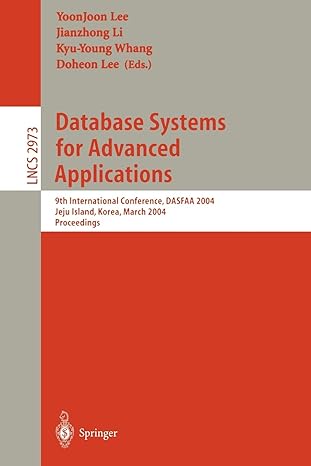Question
Write a simple program in C that asks the user for: Street Address (Max 100 characters) Address Line 2 (Maximum 100 characters) City (Maximum 100
Write a simple program in C that asks the user for: Street Address (Max 100 characters)
Address Line 2 (Maximum 100 characters)
City (Maximum 100 characters)
State (Maximum 100 characters)
Zip Code: Maximum 15 characters.
Your program should then a concatenate all the address fields together into one string and print out that string. Use strcat in this task.dont use malloc,struct or alloc.use strings msotly please dont use argc or argv use strings not char thanks!
MORE INFO
Reading a line as a String
The function char *gets(char *str) reads a line from STDIN and stores it into the string pointed to by str. It stops when either the newline character is read or when the end-of-file is reached, whichever comes first.
char sentence[100]; printf("Enter a sentence: "); gets(sentence);
Note: You should NEVER use gets function in production code because it has a buffer overflow vulnerability.
A safer alternative is the char *fgets(char * str, int num, FILE * stream) function which reads characters from stream and stores them into str until (num-1) characters have been read or either a newline or the end-of-file is reached, whichever happens first.
printf("Enter sentence: ");
char sentence[10];
fgets(sentence, sizeof(sentence), stdin);
sentence[strlen(sentence) - 1 ] = '\0'; // To remove the ' ' character from the end.
One undesirable side effect of fgets it stores the new line character ' ' if it reads one in the input. This means that you will have to manually overwrite the position of the newline character say with '\0' .
String.h Library
Length of a String
The function size_t strlen(const char *str) returns the number characters in a string not counting the terminating null.
Concatenate Strings
The function char * strcat ( char * destination, const char * source ) appends the source string to the end of the destination string.
char str1[30] = "Jan 12,";
char str2[] = " 1842";
strcat (str1, str2);
printf("%s ", str1);
The output of this code will be :
Jan 12, 1842
String Tokens
The function char * strtok ( char * source, const char * delimiters) breaks the parameter source into tokens by finding group of characters separated by any of the delimiting characters .
#include
#include
#define COMMA ",."
int main(int argc, char const *argv[]) {
char date[] = "Jan 12, 1842. May 13, 2018";
char *token = strtok(date, COMMA);
while(token != NULL) {
printf("%s ", token);
token = strtok(NULL, COMMA);
}
}
The output of this code will be :
Jan 12
1842
May 13
2018
Step by Step Solution
There are 3 Steps involved in it
Step: 1

Get Instant Access to Expert-Tailored Solutions
See step-by-step solutions with expert insights and AI powered tools for academic success
Step: 2

Step: 3

Ace Your Homework with AI
Get the answers you need in no time with our AI-driven, step-by-step assistance
Get Started


